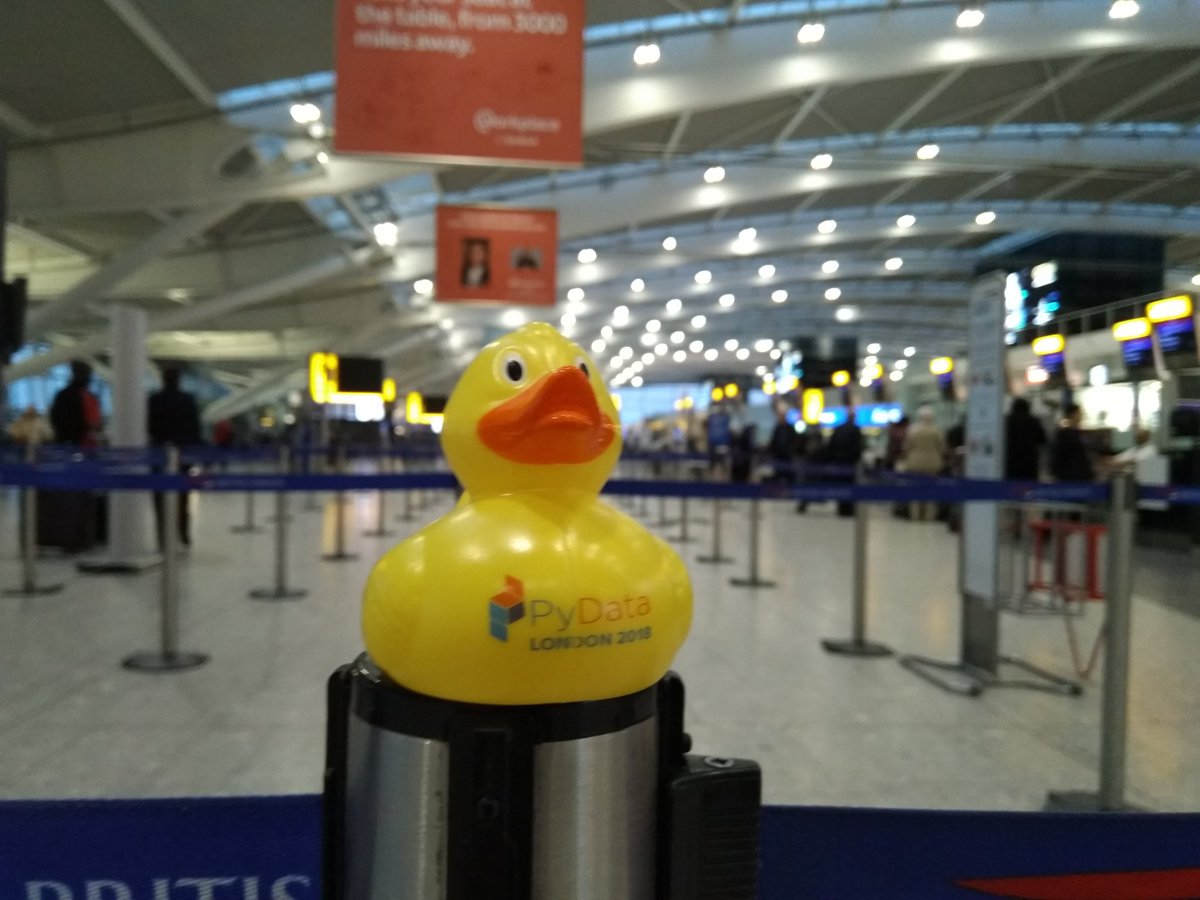This weekend we ran PyDataLondon 2018, the fifth iteration of our conference (connected with our monthly PyDataLondon meetup). This year we grew to 500 attendees! Read about the past PyDataLondon 2017 here.
Updates – videos are online, reportedly we raised £91,000 towards open source support for NumFOCUS via ticket sales & sponsorship (all the London team are unpaid volunteers, this money goes back to NumFOCUS to support the PyData ecosystem).
Here’s a summary of what we covered with 500 attendees over 3 days:
On Thursday morning I co-ran a “Make your first open source contribution” with Nick (of PyDataEdinburgh). We had a group who’d rarely (or never) made a contribution to github. We managed to commit a couple of minor doc fixes, recreated a bug in ELI5 and subsequently a new (failing) test was submitted to the project. Great success! I’m interested in another bug if you want to make a contribution.
Each room was packed with 150-200 people (with a comfy number of chairs for everyone!):
One of our key NumFOCUS organisers is Leah Silen, she’s an unsung hero who makes every conference come together. She broke her foot recently and couldn’t fly over. It turns out the crowd rather misses her and all of her work. Get well soon!
At the conference I spoke on “Creating Correct and Capable Classifiers” (worked Notebook in my github repo, full video online). We took a look at starting with a baseline model, building a better stable model, visualising errors, diagnosing where it might be failing and explaining the end results to a colleague.
Many thanks to @matti of PyDataBerlin for taking a lovely photo of our speaker-duck gift for speakers:

Many thanks also to all of our volunteers and to the staff at the Tower Hotel – thanks for making the weekend so much fun 🙂